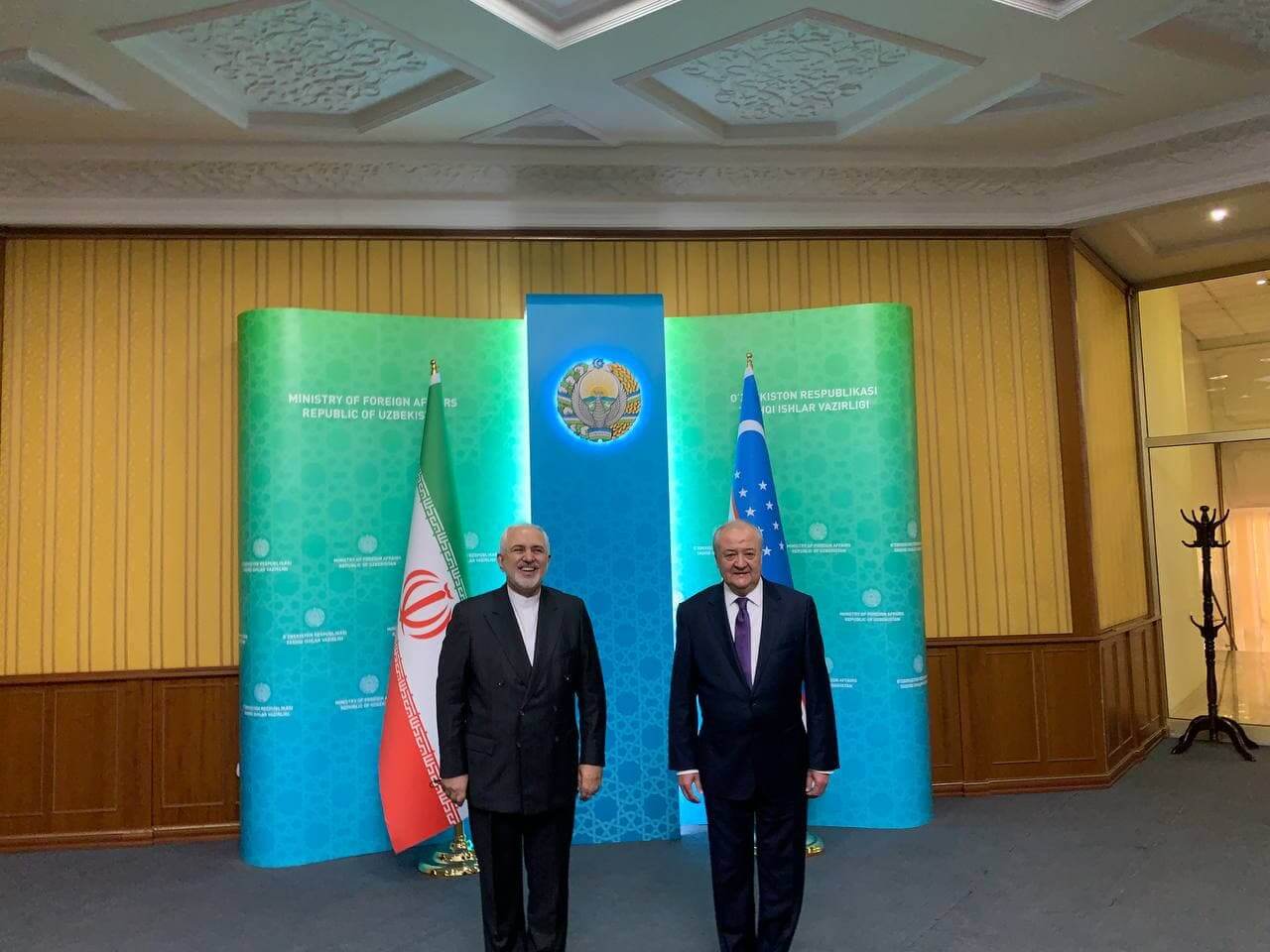On Monday, Iranian Foreign Minister (FM) Mohammad Javad Zarif met with his Uzbek counterpart Abdulaziz Kamilov in Tashkent on the first leg of his wider Central Asian tour. The two ministers discussed growing relations between their nations and stressed the need to broaden bilateral cooperation. After the meeting, Zarif tweeted that the talks were “fruitful” and sought ways “to build on our millenia-old ties to propel our bilateral and regional cooperation.”
The Iranian top diplomat also held talks with Uzbek President Shavkat Mirziyoyev, whose Press Service said that during the meeting “special attention was given to issues of economic cooperation.” In this regard, Zarif stated that Iran can serve Uzbekistan with transit roads to global markets and the high seas, according to the Islamic Republic’s official IRNA News Agency. A statement released by Iran’s Foreign Ministry also mentioned that Zarif reviewed relations between Tashkent and Tehran in various fields, “especially economic ties, trade exchanges, and collaborations in the fields of transportation, transit and energy.” In fact, Uzbekistan was part of a virtual meeting along with India and Iran on the joint use of Chabahar Port in December last year and has developed a rail network to Afghanistan which would connect it with Iran’s Chabahar region.
Apart from economic ties, both sides also discussed their security and strategic prospects in the region. Kamilov stressed the importance of Tehran’s “regional position and international influence” and said that Tashkent was looking forward to using Iran’s port capacities along the Persian Gulf and Sea of Oman coasts. The meeting also paid “special attention to the interaction of the two countries within the framework of international and regional organisations” and supported the role played by the two countries in the inter-Afghan negotiations. In addition, views were also exchanged on the “US’ unilateral and cruel sanctions against Iran.”
Zarif will also be visiting Kyrgyzstan, Kazakhstan, and Turkmenistan as part of his visit to the region. Iran has been wooing Central Asian countries for a long time because of the region’s economic and strategic benefits. In 2018, Iran signed an interim Free Trade Agreement (FTA) with the Eurasian Economic Union (EAEU), which opened new opportunities for exporters from both sides, and in 2019, Tehran hosted the Joint Economic Commissions along with Tajikistan and Kyrgyzstan. Likewise, officials from Iran also attended the Heart of Asia-Istanbul Conference on the Afghan peace process last week and FM Zarif met with Tajik President Emomali Rahmon in Dushanbe to discuss bilateral cooperation.
The Islamic Republic has also simultaneously sought to boost ties with the People’s Republic of China, especially in the wake of the imposition of economic sanctions, and it has increasingly viewed the Central Asian region as its gateway to Beijing. In 2016, in a historic event, a freight train from China’s Yiwu city arrived in Tehran for the first time. The train travelled via Kazakhstan and Turkmenistan and opened new routes of connectivity for Iran, while also boosting Beijing’s flagship Belt and Road Initiative (BRI). Moreover, last week, Iran signed a 25-year agreement with China which will make Tehran a part of the BRI and would enable both China and Iran to gain a strong foothold in the Eurasian region.
The meeting in Tashkent also focused on strengthening the cultural ties between Iran and Uzbekistan. To this end, Zarif visited the Centre for Islamic Civilisation in the Uzbek capital. He also praised President Mirziyoyev’s initiative to build the Centre and said that “it is in line with the goal of confronting extremism and staying away from violent interpretations of Islam.”
Iranian, Uzbek FMs Meet in Tashkent As Tehran Seeks Closer Ties With Central Asia
The visit is part of Iranian Foreign Minister Mohammad Javad Zarif's wider Central Asian tour, which also includes Kyrgyzstan, Kazakhstan and Turkmenistan.
April 6, 2021

Iranian FM Mohammad Javad Zarif met with his Uzbek counterpart Abdulaziz Kamilov in Tashkent SOURCE: IRAN FOREIGN MINISTRY
